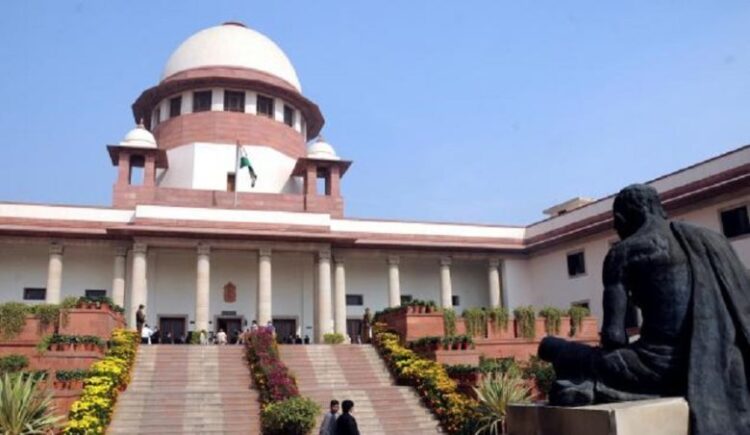New Delhi: The Supreme Court has granted anticipatory bail to an accused facing rape charge, where the victim alleged that the accused established sexual relationship with her on the pretext of marriage.
A bench comprising justices Sanjiv Khanna and M.M. Sundresh said: “We have examined the office report, and also perused the assertions made by the informant in the FIR. On consideration, we are inclined to grant the appellant — Mukesh Kumar Singh — the benefit of anticipatory bail with the direction that in the event of the appellant being arrested, he shall be released on bail by the arresting officer on terms and conditions to be fixed by the trial court. In addition, the appellant shall comply with the mandate of Section 438(2) of the Code of Criminal Procedure, 1973.”
The allegations levelled in the FIR registered in Jaipur said that the accused had established physical relations with the prosecutrix multiple times, promising her that they will get married.
The petitioner moved the apex court, through criminal lawyer Namit Saxena, challenging the Rajasthan High Court order which dismissed his plea for grant of pre-arrest bail.
The bench said, “Grant of anticipatory bail to the appellant would not be treated as expression of opinion on the merits of the case… Miscellaneous Petition… pending before the high court of judicature for Rajasthan, bench at Jaipur, will be decided on merits and in accordance with law, without being influenced by this order.”
Saxena argued that sexual intercourse by a couple in a long, romantic relationship will not amount to rape if the male partner chooses to exit after courtship.
He also argued that if the male partner chooses to exit from a romantic relationship and not culminate the same into marriage, the sexual intercourse during the period of courtship cannot be treated as without consent at all times or be termed as rape after the relationship turns sour.
The top court said, “The impugned order rejecting the application for grant of anticipatory bail is set aside and the appeal is allowed in the above terms. Pending application(s), if any, shall stand disposed of.”
(IANS)




















